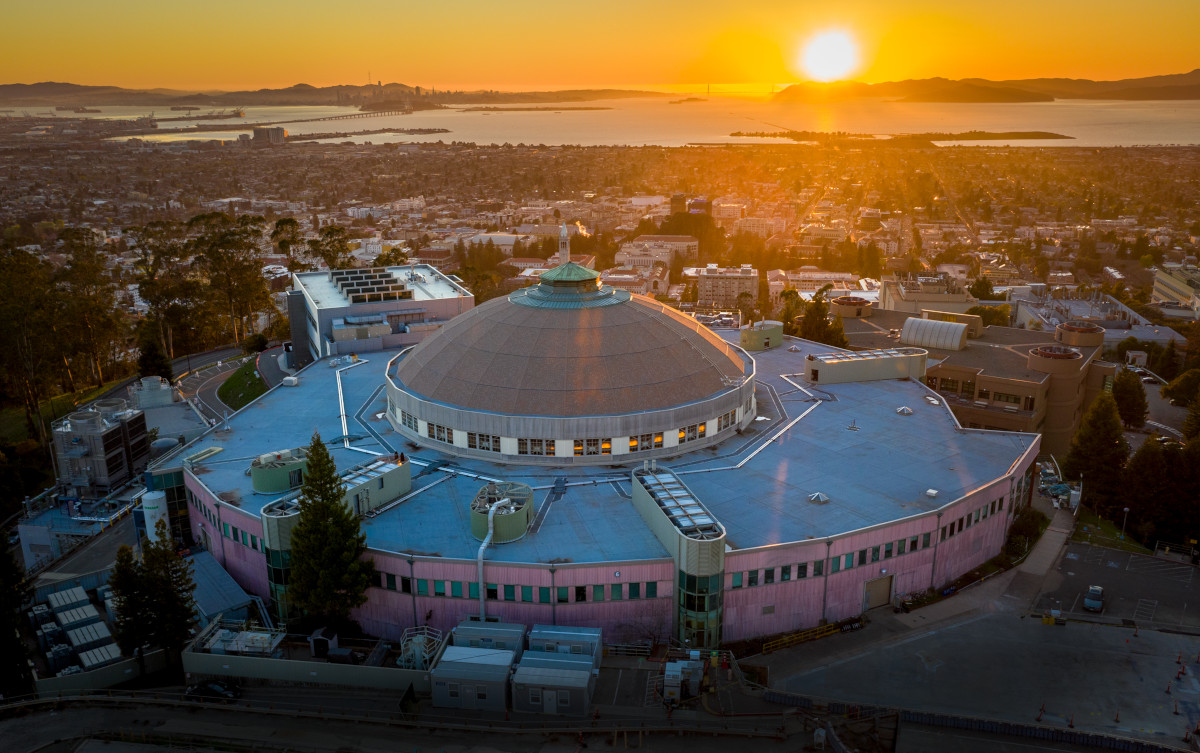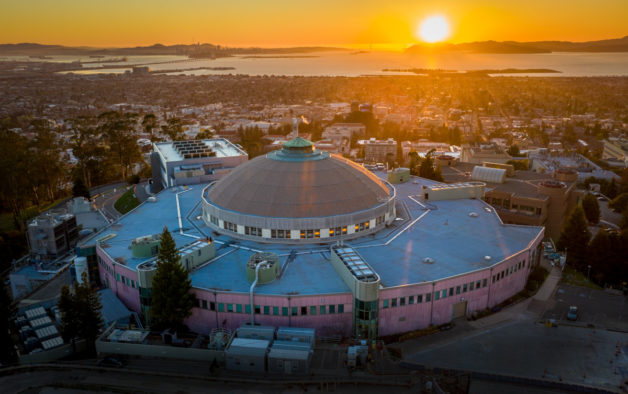The U.S. Department of Energy’s Lawrence Berkeley National Laboratory (Berkeley Lab) supports more than 10,000 jobs in the Bay Area and nearly 20,000 jobs across the country, according to a new economic impact study that underscores Berkeley Lab’s role as a major employer in the East Bay in addition to being a powerhouse of innovation. The study also determined that every federal dollar invested in Berkeley Lab, one of the world’s top research institutions, produces nearly three dollars in economic output.
In addition to commercial activity and job creation, the report highlights Berkeley Lab’s world-leading research facilities and programs, and contributions to scientific discovery. From hosting approximately 14,000 researchers annually from industry and academia at its unique scientific user facilities, to leading major research programs in the study of the cosmos, clean energy alternatives, the water and energy nexus, environmental sustainability, and advanced computing, the report documents the Lab’s impact on discovery and innovation.
“We are proud that Berkeley Lab’s team science approach plays a vital role in the nation’s innovation ecosystem. Our pioneering research helps to address urgent scientific challenges and brings tremendous benefits to the state, nation, and world,” said Berkeley Lab Director Mike Witherell.
Berkeley Lab commissioned Economic & Planning Systems Inc. to conduct the study using well-accepted methodologies and data sources. The study provides a comprehensive and up-to-date overview of Berkeley Lab’s programs and research facilities. Among its many findings, the study determined that the Lab’s activities benefit the state and national economy by:
Creating jobs:
- Berkeley Lab provides 3,525 jobs, plus about 500 jobs associated with its capital projects, such as the Integrative Genomics Building and the Advanced Light Source Upgrade (ALS-U). This, in turn, through economic ripple effects, generates a total of 6,570 Bay Area jobs; 7,500 California jobs; and 12,630 U.S. jobs.
Helping to launch new companies:
- In recent years, 60 companies have been founded based on technologies pioneered at Berkeley Lab, spanning a wide number of industries including software, bioproducts, pharmaceuticals, and battery technologies.
- In fiscal year 2018, 30 of the startup companies based on Berkeley Lab technologies generated over $1 billion in economic output in the Bay Area, $1.2 billion in California, and over $1.4 billion nationwide.
- Berkeley Lab’s entrepreneurship programs, such as Cyclotron Road, a spin-in program to help small businesses produce prototypes, helped jump-start approximately 50 companies.
Driving U.S. innovation through industry partnerships and commercialization of discoveries:
- In the last decade, Berkeley Lab has initiated 4,600 collaborative research agreements, totaling $1.2 billion, helping companies develop Lab innovations into new products. With a partnership agreement, companies are able to gain access to resources at Berkeley Lab, such as the scientific user facilities, and collaborate with top scientists.
- More than 80 Berkeley Lab technologies, protected by more than 250 patents and patent applications, are being commercialized by licensees across a broad variety of industries, from plant science for agriculture to novel materials for high-temperature applications.
Supporting small disadvantaged and women-owned businesses:
- 54% of Berkeley Lab’s procurement goes to small businesses, including small disadvantaged businesses and women-owned businesses.
Berkeley Lab’s unique approach of bringing together multidisciplinary teams and world-class research facilities has fueled 90 years of bringing science solutions to the world. Its broad research and technology development portfolios have generated innovative solutions that have become part of everyday life – from the way buildings are made more energy efficient, affordable, and safe, to how doctors diagnose and treat medical conditions. This team approach continues today as Berkeley Lab addresses urgent scientific challenges ranging from the COVID-19 pandemic to clean energy and climate change mitigation.
Additional information:
# # #
Founded in 1931 on the belief that the biggest scientific challenges are best addressed by teams, Lawrence Berkeley National Laboratory and its scientists have been recognized with 14 Nobel Prizes. Today, Berkeley Lab researchers develop sustainable energy and environmental solutions, create useful new materials, advance the frontiers of computing, and probe the mysteries of life, matter, and the universe. Scientists from around the world rely on the Lab’s facilities for their own discovery science. Berkeley Lab is a multiprogram national laboratory, managed by the University of California for the U.S. Department of Energy’s Office of Science.
DOE’s Office of Science is the single largest supporter of basic research in the physical sciences in the United States, and is working to address some of the most pressing challenges of our time. For more information, please visit energy.gov/science.

